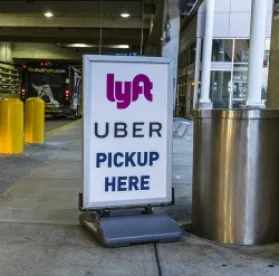Ride-sharing services Uber and Lyft suffered a recent setback before the state of Washington’s Supreme Court in their efforts to protect trade secrets from disclosure under a state public records law.
In its recent decision, the state supreme court reversed a lower court that had granted an injunction in the companies’ favor, preventing disclosure. While agreeing, in a close call, that the disputed data qualified as a trade secret, the high court overturned the injunction and sent the parties back to a lower court. The companies must now prove that public disclosure of ride-sharing information is “clearly not in the public interest” and that its release to the public would “substantially and irreparably damage a person or vital government function.” If they cannot make that case, their trade secrets may lose protection. So back to the trial court they go.
Here is the background for the case. Following resolution of a prior dispute, the companies submitted ride-sharing data to the city of Seattle, such as zip code reports derived from their driver and passenger databases. Seattle uses this information to test whether there are service disparities in underserved areas of the city, and to evaluate transportation systems, infrastructure, traffic congestion and other transportation-related issues.
The city received a public records request seeking this information and Uber obtained a state court injunction after establishing that the requested information was a trade secret. The case was then appealed to the state’s highest court. In a May 31, 2018, decision, the Court determined that the trade secrets were not automatically protected from disclosure under the state’s public record statute and that the companies had to satisfy a more rigorous standard to protect their information from disclosure. Based on certain language in the Court’s ruling, it may be a heavy lift to satisfy that higher standard. For example, the Court said that the ride-sharing data arguably involves a matter of public interest because the requester of the information uses it to assess claims of discriminatory redlining. On the other hand, there was a dissenting opinion that called out the Court for dismissing the importance of “express and robustly protective trade secret language” in other state cases and that said the high court’s decision was not “good policy.”
It remains to be seen how this turns out, but it is clearly a case worth watching for all companies that may be required to submit proprietary information to governmental entities, where the information is not specifically exempted from disclosure in a state’s public records disclosure laws. As we have written in this space before, this is just one of many potential traps for companies that seek to protect their valuable proprietary information.




 />i
/>i

